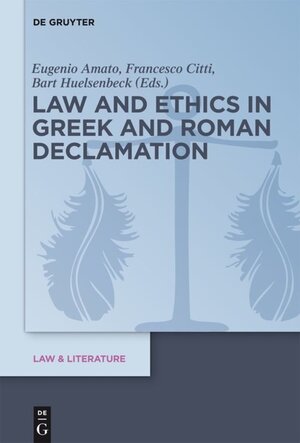
×
![Buchcover ISBN 9783110401783]()
„Overall, the reader comes away with the sense that the volume has accomplished its purpose of moving the study of declamation beyond investigations of its connection to the social world of Roman imperial education.
Law and Ethics
considers the fascinating features, including an engagement with situational ethics, that distinguish declamation from other genres of Greek and Roman literature.“
Lauren Caldwell in: Bryn Mawr Classical Review: 2016.07.30
Law and Ethics in Greek and Roman Declamation
herausgegeben von Eugenio Amato, Francesco Citti und Bart HuelsenbeckAncient declamation—the practice of delivering speeches on the basis of fictitious scenarios—defies easy categorization. It stands at the crossroads of several modern disciplines. It is only within the past few decades that the full complexity of declamation, and the promise inherent in its study, have come to be recognized. This volume, which contains thirteen essays from an international team of scholars, engages with the multidisciplinary nature of declamation, focusing in particular on the various interactions in declamation between rhetoric, literature, law, and ethics. Contributions pursue a range of topics, but also complement each other. Separate essays by Brescia, Lentano, and Lupi explore social roles—their tensions and expectations—as defined through declamation. With similar emphasis on historical circumstances, Quiroga Puertas and Tomassi consider the adaptation of rhetorical material to frame contemporary realities. Schwartz draws attention to the sometimes hazy borderline between declamation and the courtroom. The relationship between laws and declamation, a topic of abiding importance, is examined in studies by Berti, Breij, and Johansson. Also with an eye to the complex interaction between laws and declamation, Pasetti offers a narratological analysis of cases of poisoning. Citti discovers the concept of natural law represented in declamatory material. While looking at a case of extreme cruelty, Huelsenbeck evaluates the nature of declamatory language, emphasizing its use as an integral instrument of performance events. Zinsmaier looks at discourse on the topic of torture in rhetorical and legal contexts.




